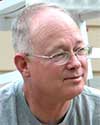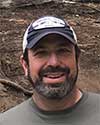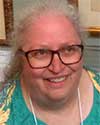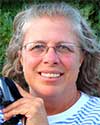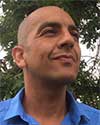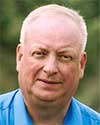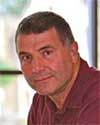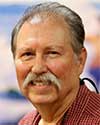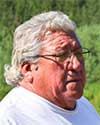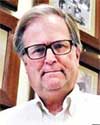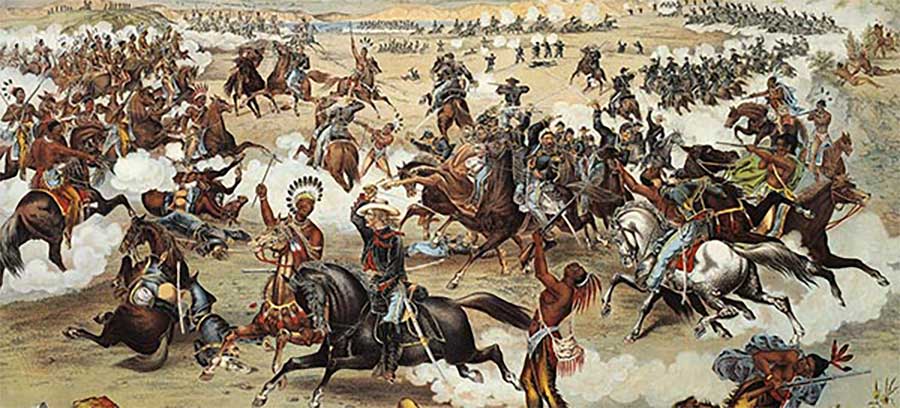Scholars/Presenters
The project team is diverse, maximizing perspectives and adding richness to the content.
The principle faculty, visiting lecturers, and workshop staff are experts - they have
written volumes of texts and articles, hosted workshops, and taught courses on the
topic and context of the battles. They will contextualize the topics through their
wealth of expertise in fields as diverse as ethnobotany, ethnography, and archeology.
They also will present the topic from differing points of view, such as the Cheyenne
warrior, Cavalry officer, Crow scout, women warriors, or US Government Official. Brief
biographies of project team members follows.
John Keener, Co-Director. He is a Project Coordinator at the Montana Center for Inclusive Education (MCIE)
at Montana State University Billings (MSUB). He will be managing the logistics for
the project. In his role as a project coordinator, he plans and executes professional
development for educators and service providers. Part of his work has been developing
and guiding professional development for the Office of Public Instruction (OPI) in
the area of Indian Education for All (IEFA), which capitalizes on historic locations,
primary sources, and hands-on activities to provide powerful learning experiences
for educators. Through his work at MCIE and independent study, he has become a valued
resource on the history and culture of the tribes of Montana, in particular Crow and
Northern Cheyenne.
Dr. Tom Rust, Co-Director. As the other co-director for the project acting as the participant academic liaison.
He serves as a Professor of History at MSUB and is a native Montanan. Dr. Rust graduated
with a B.A. in history in 1992. He received his M.A. in history in 1995 and his work
in frontier American military history, more specifically Fort Ellis, MT, has been
published in the journal Military History of West and, more recently, the monograph Lost Fort Ellis: A Frontier History of Bozeman, Montana, 1867-1886 (History Press). He went on to receive a M.Ed. in 1999 before completing his Ph.D.
in 2006. Dr. Rust has conducted both historical and archaeological research in the
American West and has been the primary investigator on over twenty archaeological
projects.
Ruth Ferris, Facilitator. Ms. Ferris is a K-12 educator and media specialist serving as a school librarian
in School District 2 in Billings. She is a trained presenter in the
Library of Congress Teaching with Primary Sources program where she has trained and assisted educators in using the Library’s resources
and website for instructional purposes and creating curriculum. She is also a primary
presenter of IEFA for OPI in the state of Montana using her expertize, experience,
and knowledge of Native American cultural and tribes in Montana to assist educators
in incorporating this information into the classroom. Ms. Ferris was the Gilder Lehrman
2015 Montana History Teacher of the year.
Kathi Hoyt, Facilitator. Ms. Hoyt is a K-12 educator and media specialist serving as a school librarian in
School District 2 in Billings. She is a trained presenter in the Library of Congress
Teaching with Primary Sources program where she has trained and assisted educators
in using the Library’s resources and website for instructional purposes and creating
curriculum. She is also a primary presenter of IEFA for OPI in the state of Montana
using her expertize, experience, and knowledge of Native American cultural and tribes
in Montana to assist educators in incorporating this information into the classroom.
Dr. Shane Doyle, Faculty Presenter. Dr. Doyle an educator and cultural consultant, is from Crow Agency, MT, the town
adjacent to the Little Bighorn Battlefield. Shane is a member of the Crow Tribe and
was recently appointed to the Montana Governor’s Parks in Focus Committee. With twenty
years of combined teaching experience as a public-school teacher and as an adjunct
professor of American Indian and Indigenous Studies at Montana State University Bozeman,
Dr. Doyle has focused his life’s work on understanding and articulating the cultural
geography of the Northern Plains.
Dr. Timothy P. McCleary, Faculty Presenter. Dr. McCleary is the current archaeologist for the Crow Tribal Historic Preservation
Office and the Abandoned Mines and Lands Office for the Apsáalooke. He has been a
professor of history and social sciences at Little Bighorn College, a Native American
tribal college on the Crow Indian Reservation, for over twenty five years, and was
once the Chief Historian at Little Bighorn Battlefield National Monument. His fields
of inquiry are anthropology, history, and archaeology, where he has examined various
aspects of the historic and contemporary culture of the American West and Native people
of the Great Plains.
Dr. Tim Lehman, Faculty Presenter. Dr. Lehman is Professor of History at Rocky Mountain College where he teaches a
wide variety of courses in American, Western, and Environmental History. He is the
author of Bloodshed at Little Bighorn: Sitting Bull, Custer, and the Destinies of Nations (Johns Hopkins University Press, 2010). He has also published articles and reviews
in professional and popular journals and on web sites. From 1996 to 1999, he served
on the board of the Montana Committee for the Humanities (now Humanities Montana)
and is currently the Governor's Appointee to the Montana Heritage Commission.
Dr. C. Adrian Heidenreich, Faculty Presenter. Dr. Heidenreich is Professor Emeritus, American Indian and Indigenous Studies, at
MSUB. Dr. Heidenreich had a distinguished teaching career of forty years in American
Indian and Indigenous Studies, Anthropology, and Sociology. He has served as a resource
scholar for newspapers, radio, films, and books, and is a board member of Friends
of Chief Plenty Coups State Park. His scholarly works include the book “Smoke Signals
in Crow (Apsáalooke) Country: Beyond the Lewis and Clark Expedition” and essays “The
1880 Crow Indian Delegation to Washington, D.C.,” “The Western Tipi Pole of Crow Territory,”
“Plenty Coups: A Chief among Chiefs,” and “Colonial Policies and Tourism in Tibet
and Native America.”
Linwood Tall Bull, Faculty Presenter. Mr. Tall Bull is a retired Northern Cheyenne ethnobotanist and coauthor of “We,
the Northern Cheyenne People: our land, our history, our culture.” He is a resident
of Busby, MT, a member of a venerated, traditionalist Northern Cheyenne family and
a leader of the Dog Soldier Society, one of four Cheyenne sacred warrior societies.
In the summer of 2013, he worked with Dr. Kelly Dixon on the Landscape Archaeology
Field School and Northern Cheyenne Culture Camp. Part of that project involved documenting
the Rosebud Battlefield landscape. Mr. Tall Bull is also a teacher at Chief Dull Knife
College on the Northern Cheyenne Reservation and a primary presenter for the OPI’s
Indian Education for All initiative.
Tim Bernardis, Faculty Presenter. Mr. Bernardis is the founding (1985) and present Library Director for Little Big
Horn College in Crow Agency, MT. In 2015, he received the International Guardians
of Culture and Lifeways “Honored One” Award from the Association of Tribal Archives,
Libraries and Museums for his contributions to the College and the field of tribal
libraries and archives in general. Mr. Bernardis has worked as a seasonal interpretive
ranger at the Little Bighorn Battlefield National Monument and has been a member of
the Friends of Chief Plenty Coups Advisory Council since 1998, serving as Vice Chairman
of the group since 2001. His publications include Crow Social Studies: Baleeisbaalichiwee (a Crow History teacher’s guide), Robert Yellowtail (biographical essay/ chapter) coauthored with Frederick E. Hoxie in The New Warriors,
Native American Leaders Since 1900, and The 1990s, part of the Crow entry by Frederick W. Voget in the Handbook of North American Indians, Smithsonian
Institution. He is both adopted and married into Crow families.
This institute is being funded by the National Endowment for the Humanities.

Any views, findings, conclusions, or recommendations expressed in this web resource
do not necessarily represent those of the National Endowment for the Humanities.
